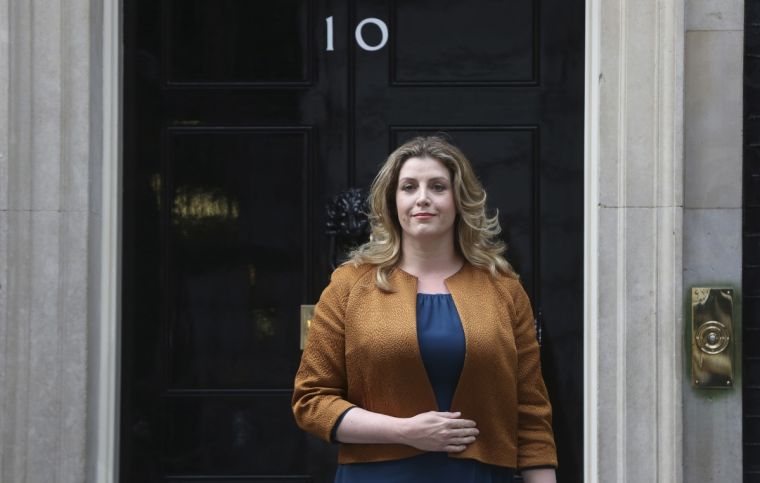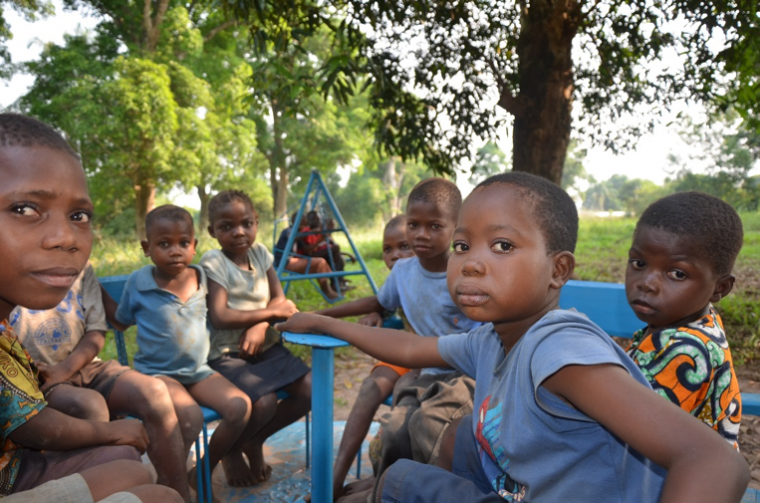World Vision questions Penny Mordaunt's overseas aid policy relaunch, calls for focus on children
A leading Christian charity has called on the government to put the world's most vulnerable children at the heart of overseas aid policy following a speech from the international development secretary in which she shifted the emphasis onto British interests.
Launching an overhaul of British aid today with a speech in London which made no mention of children, Penny Mordaunt declared that aid should serve the British 'national interest' as well as that of developing countries, and said her department would work with the private sector, global business and the City of London.
Responding, World Vision's senior conflict adviser Sarah Pickwick told Christian Today that while the charity welcomed some of the government's approach, 'children were not the focus and that sounded alarm bells for us'.

In her speech, Mordaunt recommitted the government to spending 50 per cent of the aid budget on fragile states which, she said 'genuinely tackles the underlying drivers of instability'. She added: 'We will focus on building long-term stability, addressing the causes as well as the consequences of conflict. However, we will go further as part of cross-government efforts to directly tackle national security threats such as conflict, terrorism, violent extremism and organised crime.'
Pickwick said World Vision welcomed this as 'fantastic' in principle but asked: 'How does this translate for children in vulnerable areas on the ground?'
She added: 'Globally less than one per cent of aid goes on ending violence against children. Broken down, that is 46 pence per child. It is a pittance of what is needed in terms of what is needed to protect children who are at serious risk of violence.
'If you don't have the resources behind that you can't create change. If the UK wants to put the world's poorest at its heart, the clear way to show that is to focus on the most vulnerable – and one of those groups is children. We would want to see children kept at the heart.
'We were pleased that the secretary of state mentioned that aid should look at causes of conflict as well as consequences – if made a reality that should bring better outcomes for children.
Pickwick explained that World Vision works 'in a lot of contexts where children are very vulnerable, such as the Democratic Republic of Congo, Somalia, Sudan – places where there are massive needs and often a very high proportion of those in need are children.
For example: 'In Congo, there are 13.1 million people in need of humanitarian assistance, and more than 60 per cent of those are children.'
And 'in Somalia, there are 2.8 million children in need of humanitarian assistance.

'In crisis after crisis on the ground we are seeing that children are the most vulnerable and need support not only to survive but also to adapt and even to thrive.
'The language in the speech very much said on the one hand that they wanted to show solidarity with the world's poorest and obviously children are among that group, but you need to call it out. It is not that the government isn't thinking of children at all – but it needs to be more explicit. You can say a lot of words but they are demonstrated by what you actually do.'
On Mordaunt's theme of the 'national interest', Pickwick said: 'When it comes down to the purpose of aid, if aid and development are used to serve national interests it ends up being less effective. UK values are better reflected by keeping the poorest at the heart of what we do, and children need to be at that heart – and any aid needs to be needs based on a poverty focus rather than anything else. Children and the most vulnerable children need to be at the heart of aid.'
She concluded: 'We are pleased that the UK is focusing on the most fragile and conflict areas where the most vulnerable are but it is about focusing even more on those who are at the heart of what we do and it is trying to see how we can better serve the most vulnerable and particularly the most vulnerable children.'
World Vision is not alone in issuing a warning over the contents of Mordaunt's speech.
Nick Dearden, the director of another campaigning group, Global Justice Now, said:'We've clearly seen the dangers that the big financial corporations in the City of London have done to the world over the last 10 years. We've seen the way that unregulated free trade has trashed poorer economies while boosting the profits of big business. What the developing world needs is the control and regulation of these institutions so they can gain some control over their own economic development. Unfettered free trade and free markets will not solve poverty. They will make the world more unequal, more insecure, more dangerous...
'We are deeply concerned by the idea that anything which helps British business and the City of London invest in Africa will help reduce poverty. This is trickle-down economics – pour money in at the top and it will eventually help those at the bottom. Sure, investment and trade can be useful, but only if properly controlled and regulated democratically by African governments. Otherwise, the flow of capital will simply enrich the bankers in the City and the elites of the recipient countries. Some African countries are already at risk of a re-run of the 1980s and 90s debt-crisis – simply flooding markets with more loans and finance could well exacerbate that.'











